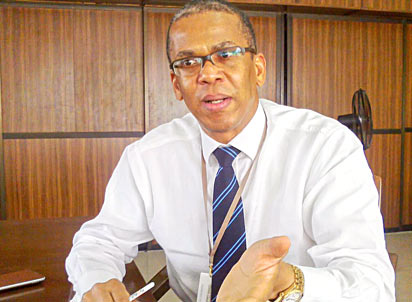Chief Ede Dafinone, a chieftain of the All Progressives Congress, is Chairman, Nigerian Conservation Foundation. Dafinone contested the bye-election for Delta Central Senatorial District in 2013 on the platform of Democratic People’s Party. In this interview, he says successive administrations in the country and Niger Delta leaders should be blamed for the dilapidation of infrastructure in the oil rich region.
Nigerians are lamenting that things are getting worse every day. What is your take?
The statement you made that Nigerians are leaning towards the feeling that things are not going too well is very true. From the private sector, the economy has been underperforming compared with the position we were in four or five years ago.
The feeling of Nigerians was that the coming of the Buhari government would bring immediate change and, of course this is not possible. Change does take time. Also there are two overriding factors: One the economy was in a bad shape occasioned by the crash in oil prices from the highs of $120 per barrel.
In the first few months of this administration, we saw oil prices at the level of $30-40 per barrel and, with your revenues cut by 60%, 70%, government will have a hard time.
The second key factor is that the past administration, with the ample resources at their disposal and the high oil prices, was not able to put the country on the right footing and I can hear you say that here is another APC person blaming the PDP government, but really it is a wider issue than that because the whole world slipped into recession at that same time and not just a matter of Nigeria; so it takes a bit of time to restructure the economy.
This administration has taken bold steps to restructure, and I expect the dividends to show in the 3rd and 4th years after assuming office for the Nigerian people to see that the APC government can perform and will perform in the next term also.
You said this administration has taken time to restructure. What are the areas they have restructured?
The economic recovery and growth plan is a bold step; the Ease of Doing Business in Nigeria is an even bolder step. I think somewhere within that particular document, there is a new policy direction where the government says if you apply for a permit and it is meant to take 45days, on the 46 day you can rightly assume that your permit has been granted if you have not heard from that office. If government is able to shorten such processing time, then, yes, there is massive change coming.
When you talk about change, you are talking about the impact; how has this restructuring you mentioned impacted on Nigerians?
I said that I would expect that the impact will show in the 3rd and 4th years of the administration. In fact, my estimate is that by the 4th quarter of 2017, Nigerians should be able to see some difference in the economy and that stems significantly from the change in the direction of the foreign exchange policy of the CBN. For about two months now, they have made foreign exchange freely available which means importers can have access to foreign exchange and therefore import the raw materials for their manufacturing or the goods for trade.
You are a member of the private sector. Would you say these policies are beginning to impact positively especially since you head the MAN export group; this Ease of Doing Business you are talking about, have you begun to see the impact?
The policy is a good step in the right direction but policy is one thing while implementation is another and we are still in the early stages of implementation
source: Vanguard




